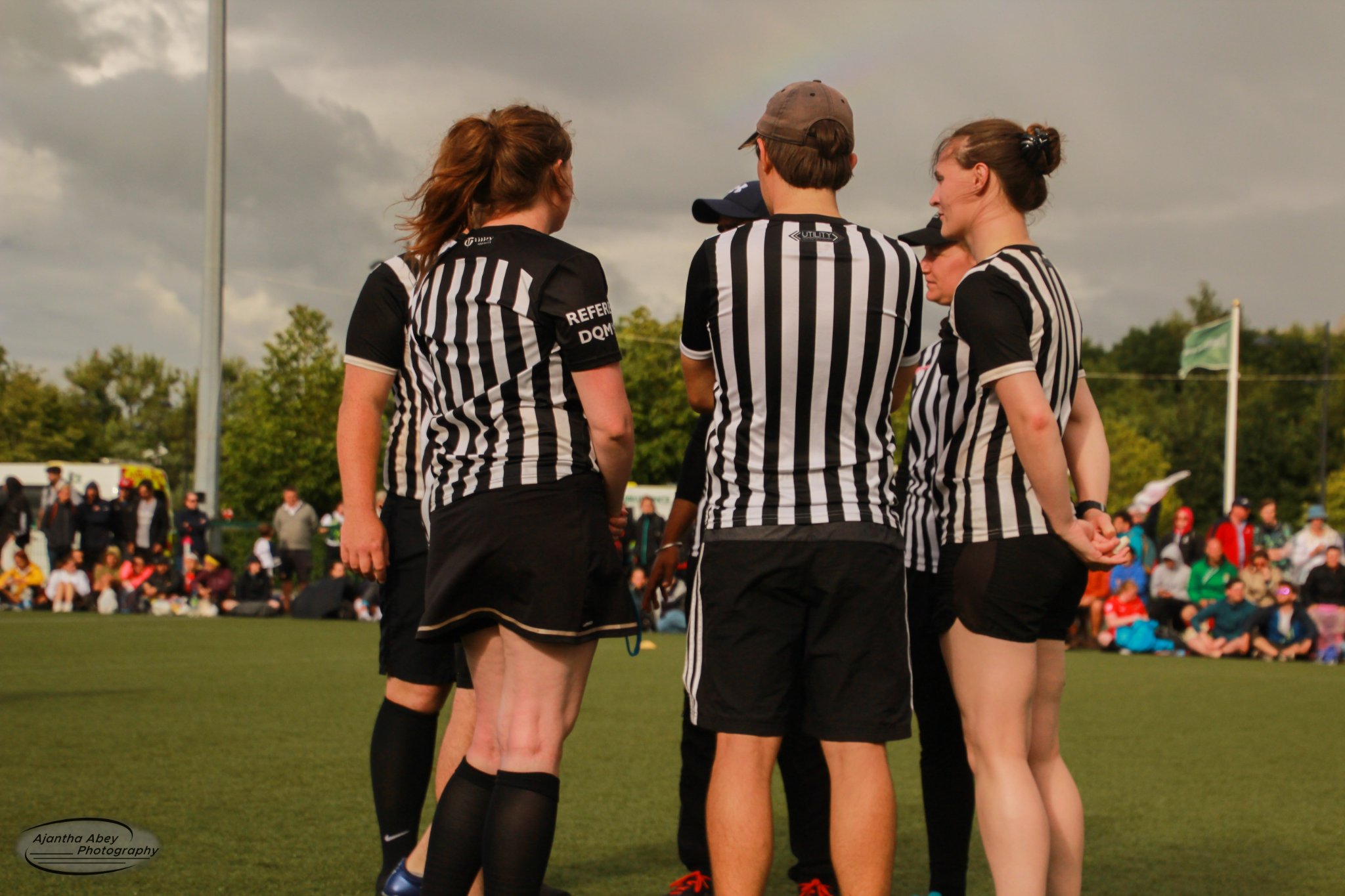At long last, the newest edition of the IQA Rulebook is being released. There have been many delays but we appreciate the patience the community has had.
Below you can download the new rulebook and explore the status of the previously proposed changes. For more information, please consult Appendix E: Changelog, and the rulebook itself.
Referee certifications will be updated to match the new rulebook later this year.
If you have any questions, please email them to [email protected].
Read the new rulebook
See our latest rulebook in PDF here.
We’re working on rulebook translations into the current IQA working languages (see our 2022 translations) and aim to release the first of these soon.
Do you want to help make the rulebook available in another language? Get in touch with [email protected].

Major Change Proposals
Gender Maximum Rule
During both the seeker floor and overtime, a team may only have 3 players that identify as the same gender in play (previously 4). Provisions have been added to allow leagues (organizing bodies) to relax this rule through gameplay policy as a means of helping teams that may not be ready to compete under this new rule otherwise.
Introduction of a 1 meter restricted zone around the hoops
This change was NOT implemented.
Other Change Proposals
Moving the hoops further apart
Hoops have been moved from 2.34 m to 2.75 m apart. This is slightly different than the originally proposed 3 m.
Protecting bent over players
Rules have been added to treat contact with players that are bent over (more than 45 degrees from upright) as contact from behind.
Allow a limited free reset into the defensive half when 2 hoops are dislodged.
Teams may now carry the ball across the midfield line to request the opponent’s hoops be reset when at least 2 hoops are dislodged. Provided the offensive team informs the head referee of their intention to do so beforehand, this will NOT be counted as a reset.
Allowance for alternate ways to determine the team calling the coin toss.
The event director may set alternate methods of determining which team calls the coin toss at the beginning of each game. The current method (furthest distance travelled) shall remain the default.
Banning pockets on the flag runner’s clothing
Any pockets on the flag runner’s clothing must be securely taped, zippered, or sewn shut.
Simplify and streamline the headbeat rule
ALL headbeats are illegal unless covered by one of the existing legal exceptions (the struck player changes speed or direction, the ball grazed the head or made contact with negligible force, or the dodgeball was propelled, without excessive force, from approximately 5 meters or more away). These exceptions and the rules surrounding excessive force headbeats have NOT changed.
Restricting players to the team bench
Players are restricted to the team bench (previously team bench or substitution area) unless about to substitute into the game. This proposal was passed as part of the 2022 release, but the wording was never updated.
Placeholder names
Alongside the renaming of the sport to Quadball, volleyball, dodgeball, flag, and flag runner have all been adopted as official names (previously placeholders). Additionally, broom has been renamed to stick.
Clarifications and Minor Fixes
Adjusting wording on shin guards
Shin guards are now covered under their own Additional Equipment subsection.
Adjusting the wording of 4.3.3.B.ii. for increased clarity
The phrase “while successfully attempting a goal” has been changed to “while successfully attempting to score a goal”.
Clarifying what counts as a “sleeve”
Sleeve has been added to the glossary with the following definition “An item of clothing, or portion thereof, which encases an extended portion of the player’s upper arm, and which may additionally extend beyond the upper arm. Bracelets, armbands, headbands, and other similar items are not sleeves.”
Dislodged hoop
Rules have been added to clarify that players may not tag in on a dislodged hoop. Dislodged hoop has also been added as a glossary term. Previously, the rule stating players could not tag in on a dislodged hoop existed only in the glossary definition of hoop.
Clarifying players in the penalty box are in play
Rule 9.4.3.A. previously stated players in the penalty box were considered in play only for the purposes of the gender maximum rule and positions, while a now removed clause of 1.2.3 Gender maximum rule stated players in the penalty box were considered in play generally. This has been consolidated and 9.4.3.A. now states players in the penalty box are considered in play (without qualifiers).